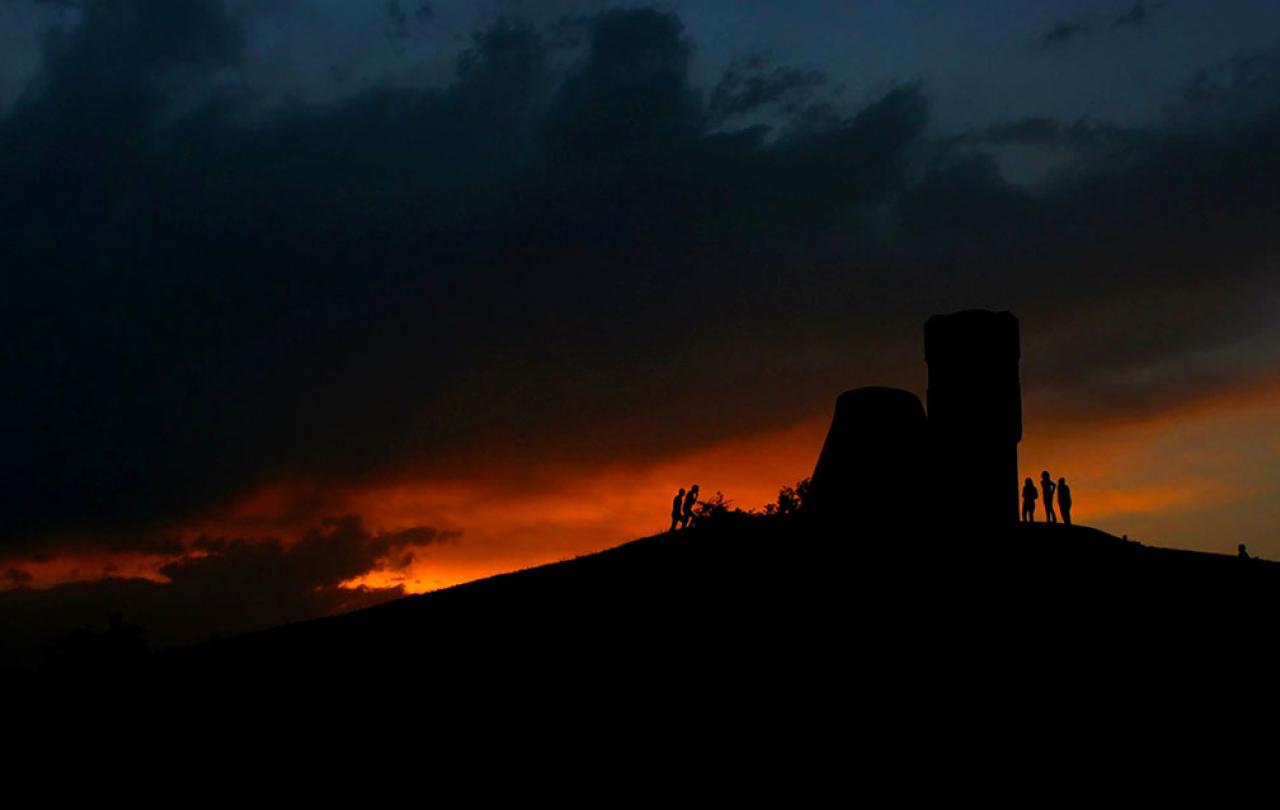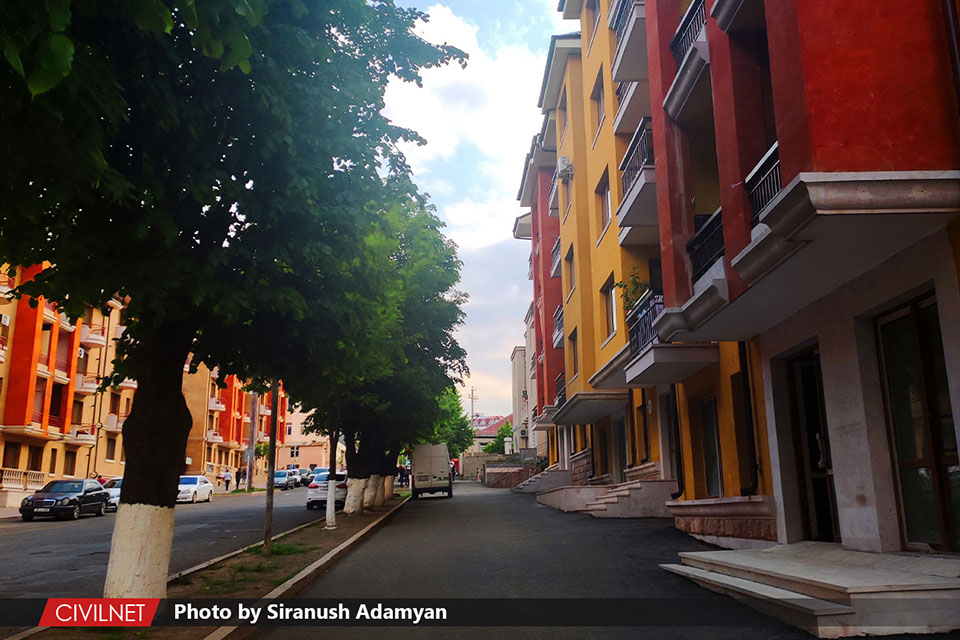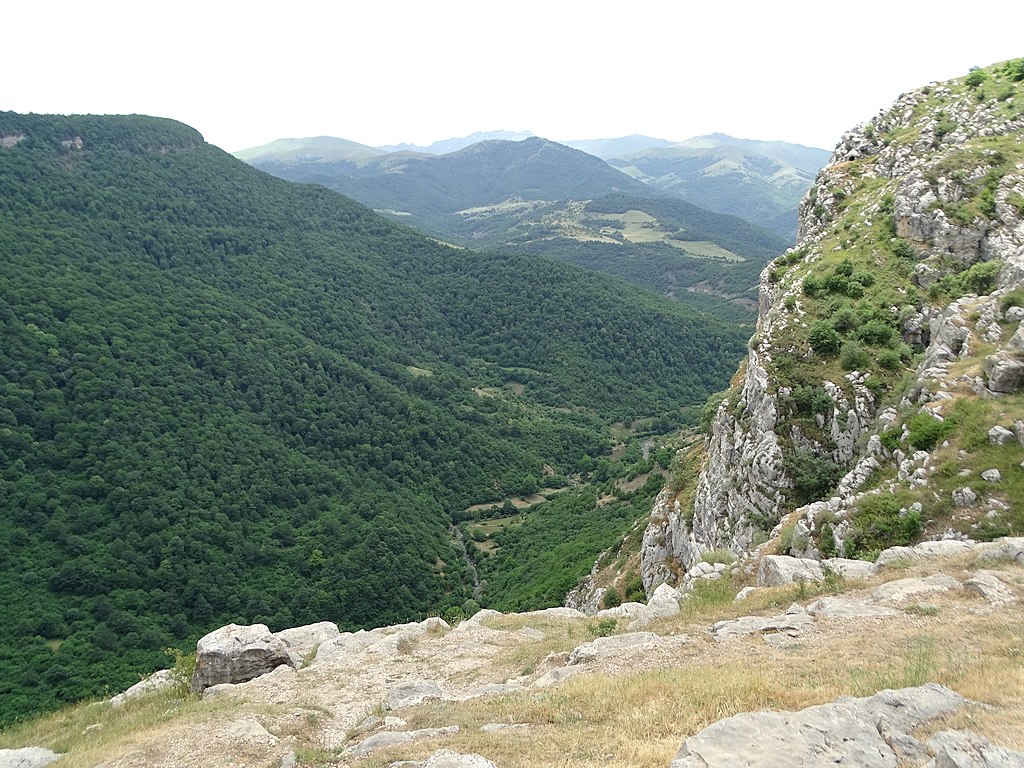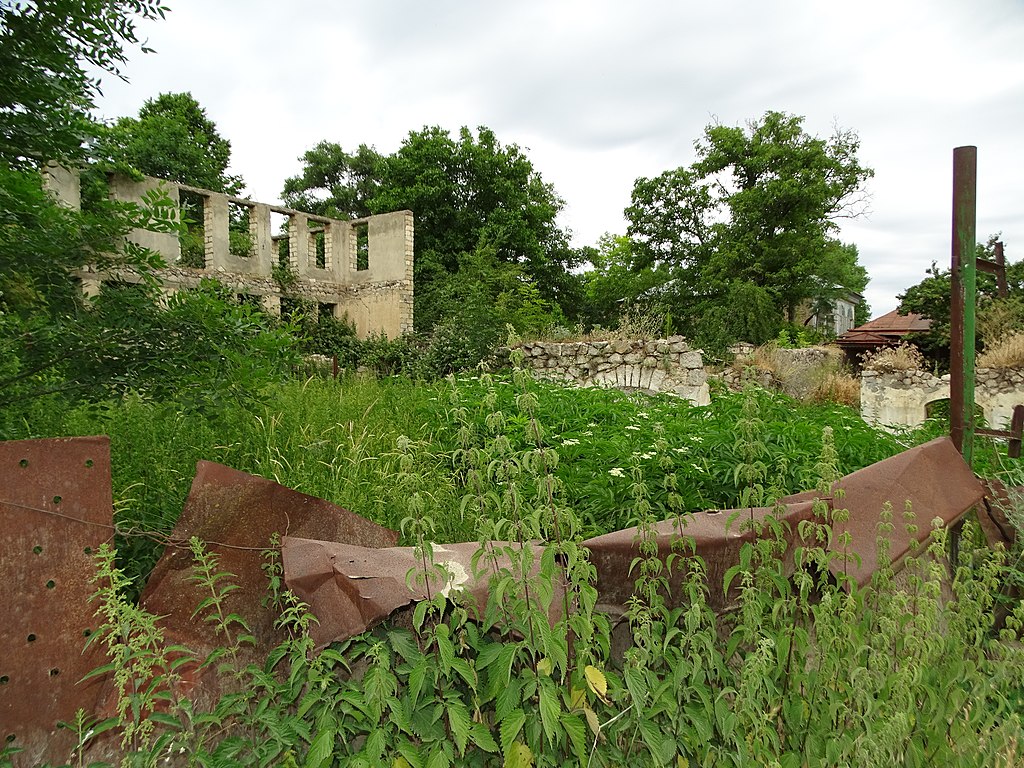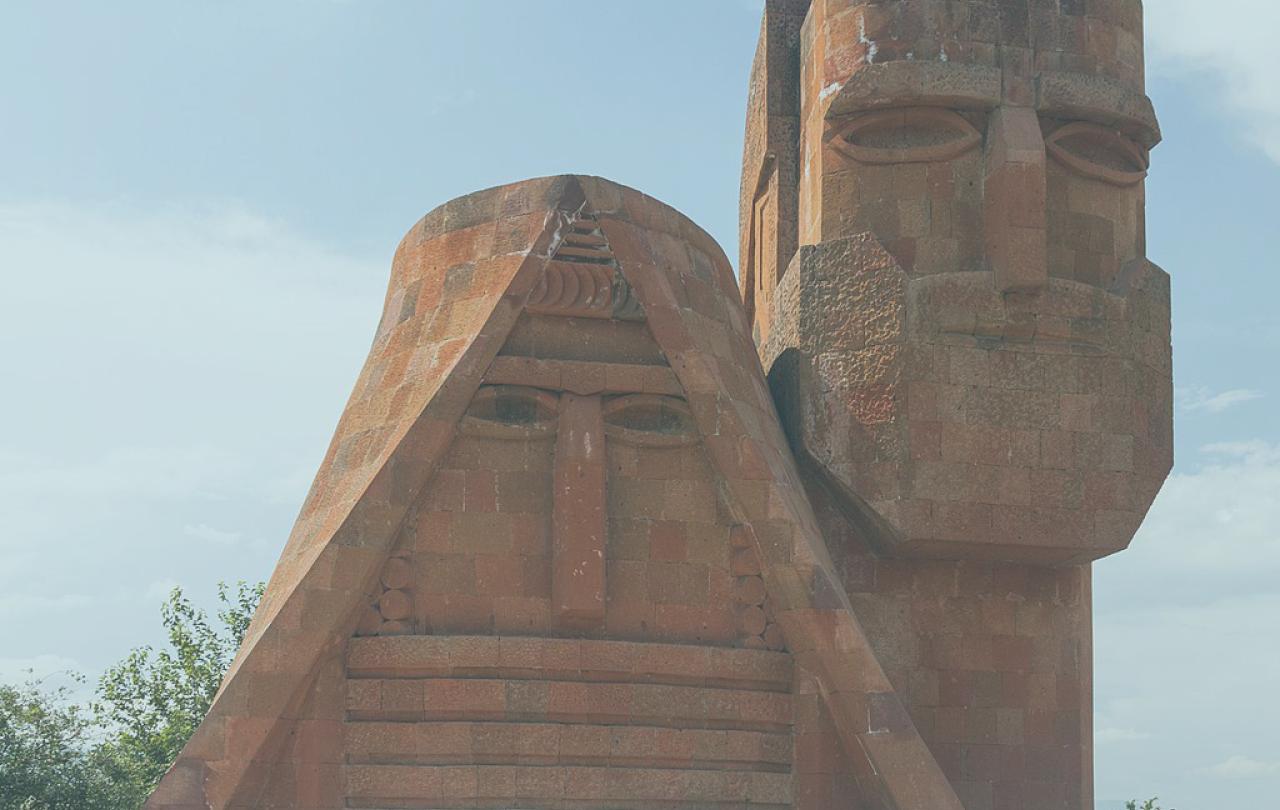Once upon a time in a faraway corner of the world, there was a little republic. It was mountainous and beautiful, located in the South Caucasus. Here was the ancient Amaras monastery, where the creator of the Armenian Alphabet Mesrop Mashtots founded the first-ever school that used his script - the Armenian Letters, in the 4th century. Many other Armenian Christian monasteries and churches from the 4th, 8th, 13th and different centuries are located in this area.
This is a magical place - the Republic of Artsakh, although you may have heard it called Karabakh. Depending on who you ask that means Black Garden or a Beautiful Garden.
Stalin’s legacy
Nagorno-Karabakh is a disputed territory between Armenia and Azerbaijan, but for me, it is HOME. The conflict over Karabakh dates back to the early days of the Soviet Union when the boundaries of a new empire were being drawn. It was Joseph Stalin’s idea to award the territory of Karabakh, inhabited by Armenians for centuries, to Soviet Azerbaijan, which produced 60% of the oil of the USSR. But Karabakh would remain semi-autonomous and Armenians actually remained a firm majority there even though ethnic crimes increased over the next decades.
In February 1988 mobs of Azerbaijanis in the seaside town of Sumgait began to attack and kill Armenians in the town. That is when Armenians in Karabakh and in Armenia rose after protests
and in 1991, as the Soviet Union was collapsing, the people of Karabakh voted to regain independence, just like Armenia, Azerbaijan and other Soviet countries. Of course, Azerbaijan didn’t like that. That is how the first war started. In the early 1990s, Armenians from all over the world came to Artsakh to fight in an intense ground war. When a ceasefire was brokered in 1994 Armenians were in control of Artsakh and several surrounding regions. So the Organisation for Security and Cooperation in Europe’s Minsk Group, co-chaired by Russia, France, and the United States, was charged with organizing the peace process. But negotiations failed and Artsakh was never recognized. Azerbaijan continued to dream of revenge.
A peaceful capital
This area is not so rich in natural resources, but it seems like heaven on earth. Clean mountain air, green and dense forests, pristine water from the mountains, and kind, smiling people. Here, for example, in public transport, you will never be afraid that someone might steal something from your bag. Such things do not happen in Artsakh. Children can play quietly for hours in the yard, and parents don't even think that someone can harm them. While walking in the capital city - Stepanakert, it is impossible to see any garbage on the street, people keep the environment very clean. People do not usually take their parents to the care home, but take care of them themselves and enjoy the presence of their parents until the last day. Everyone cares about each other and just wants to live peacefully in their homes. I was born in Stepanakert and grew up in just such an environment.
The first day
On September 27, 2020, we woke up in the morning to the sounds of an explosion. At first, I thought it was just a nightmare. But then, when I saw my little sister trembling with fear, I realized that it was real, and the war had begun. Azerbaijan attacked Artsakh and used various prohibited weapons, targeting ordinary people like me. My family and everyone went down to the basements, the first floors of our houses, or wherever we could hide. However, we were aware that we would not be saved in case of a direct hit, of course.
I was working as a journalist in an Armenian media outlet Civilnet at that time and could not sit idly by. My cameraman and I went out into the streets together to see what evidence we could film. I started my work as a journalist only two months before the war and it would be a lie to say that I was the most experienced one. However, at that moment there was no more time, it was necessary to get together and do what you can. Our colleagues from Yerevan, the capital of Armenia, joined us and together we began to tell stories about the war. I turned from a novice journalist into a war correspondent.
The diary of war
All my family was in this war: my mother worked in the hospital and I saw her only several times during those 44 days of the war; my brother was called to the frontline on the first day and was in the war till the end; my father, a veteran and a disabled person from the First Artsakh War, helped transport military equipment. For us it wasn’t like ‘going to war’, for us it was ‘protecting our home’.
I started to write posts - diaries every day and post them online. Here is a paragraph from the first day:
‘I couldn’t just sit around and do nothing. No matter how much my parents insisted, I decided to go out into the city and work. I am not a war journalist, of course, but this is not simply a job. These events are happening in my Artsakh. Today, for the first time, I witnessed the traces of explosions, scattered pieces of rockets, wounded people and a drone flying and exploding in the air… I think that’s enough for a day.’
The diaries became quite popular by that time, especially after some days, when my cameraman was also called to the frontline. I couldn’t make video reports myself, and then I started to write and photograph more. I understood that I don’t want to write about politics, but rather about human beings, who suffer, hope, smile, cry, lose, and love.
‘Today my friend Mike from the USA, also a reporter, asked the five-year-old boy Marat what he would do if he had a lot of money. We met the family of Marat in a basement of an old school. He replied, “I would buy a watch and sunglasses.” Mike took his Lacoste glasses out of his bag and gave them to Marat as a gift. “Try them on!” And Marat, not knowing how to put them on, wore them backwards. We all laughed and helped him to do it properly. They were too big for him but he was incredibly happy. We looked at the boy and said, “Marat, you have to be careful, they cost a fortune!” We all had a good laugh…’
Sometimes it was very difficult to stay resilient…
‘Day 15: October 11, 2020
It already feels like Groundhog Day. Stepanakert isn’t being bombed, at least that is how it seems so far since I’m still in the basement. The drones flew and fell, but I did not hear talk of victims. The weather was great today, but it was scary to go outside. Sometimes, it feels like I will never be able to go out into the street. I woke up at midnight and I couldn’t sleep the rest of the night from yesterday’s heavy bombing. We already can distinguish the sounds—when it’s a Smerch, when it’s a drone, when it’s cluster bombs, and when it’s us hitting their drone. It is sad that we can distinguish these sounds. But what can we do? This is our reality for today.’
During the war, I and my diaries experienced a lot. I heard that the hospital where my mother works was bombed. I headed there and found her, thanks to God, safe and sound. I saw a man repairing his garage as cluster bombs were falling; a woman making tea between an intermission of the bombs; the targeting against the civilian population; a human rights defender who could not see asking the world not to be blind; soldiers being baptised in the middle of the war; a man dying in a hospital; houses without faces; closets abandoned; toys left behind; mothers who lost the meaning of the lives - their sons…
The war was over with our loss… We didn’t win, although we thought we will… Azerbaijan conquered nearly 70% of Artsakh. Thousands of people lost their lives, and thousands lost their homes and became displaced persons. The war continued for 44 days and 150 000 Armenians of Artsakh and millions of Armenians in Armenia and Diaspora will never forget those bloody days.
Writing the diaries for me was a way to express myself, as sometimes it seemed that I could go insane. I also felt that by doing that I am useful to others. And that is a very important factor for me. I, like everyone else, wanted to be useful. Mostly the women and children left for Armenia, to a safer place, than Artsakh. They went there to wait until the war is over, and later they came back home. I felt that people who are outside couldn’t really know what happens there. That is why I wanted to give them information first-hand.
During the war, I met many wonderful people. I also met a director, Garin Hovannisian, who came to Artsakh from Armenia to film the war and my diaries. After the war, he supported me in publishing the diaries as a book: 44 days: Diary From an Invisible War. Together we made a documentary on the Artsakh war - Invisible Republic, which is now, after taking part in film festivals, available for watching.
